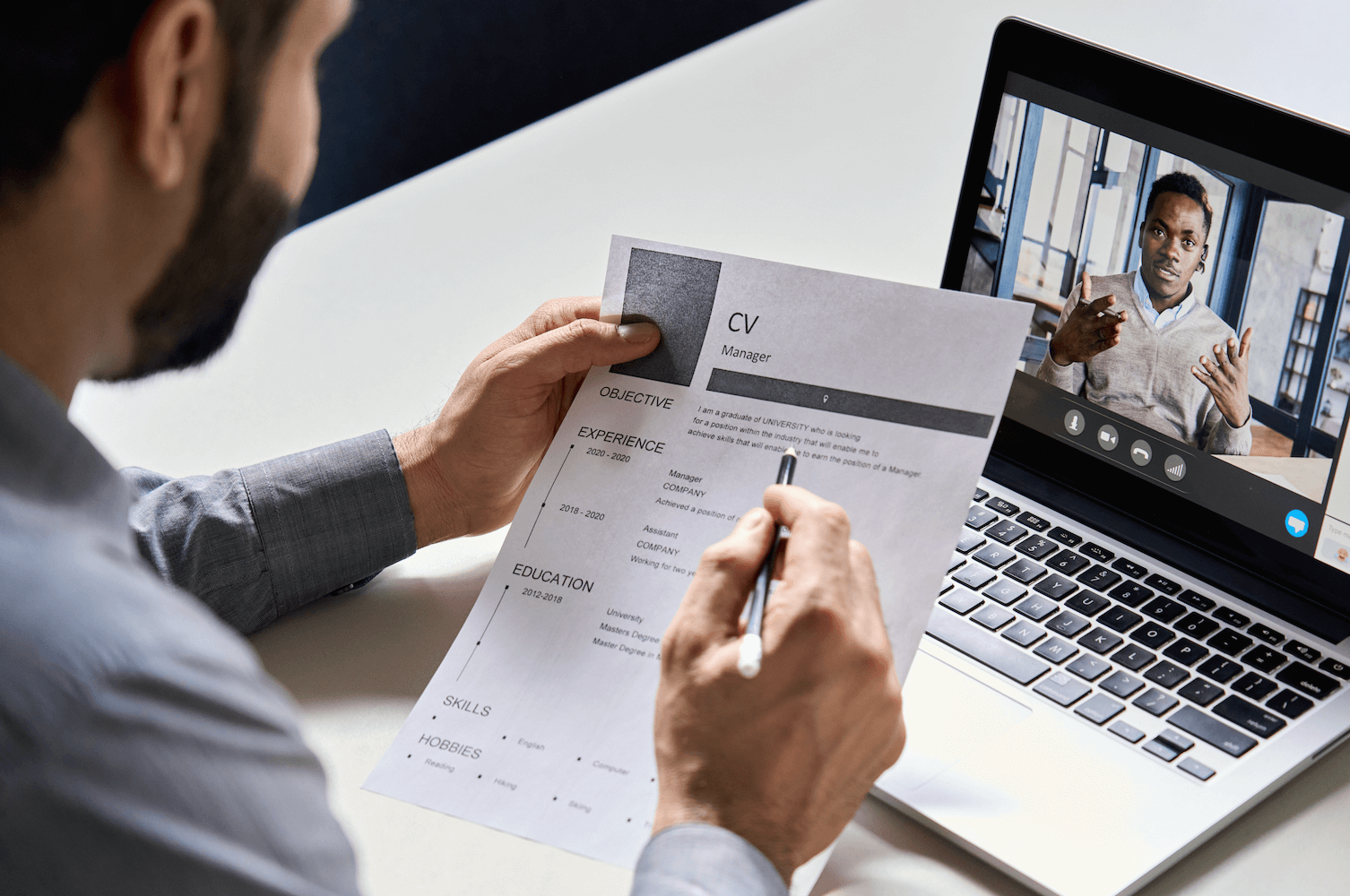Most people find interviews stressful. It is human nature. The best advice we can give is make sure you are well prepared and try and treat it more like a conversation than feeling you are there to be put on the spot. It is a two-way chat where you find out more about the role and the interviewer finds out more about you to see if you are compatible.
Of course, we now see many more telephone and video interviews than we did a few years ago, so we have put together some tips to help you get through the conversation smoothly.
Before you start
Once you know about the interview, any information you can gain from the recruiter will be useful. What is the intention of the interview? Who will you be speaking to, for instance is it your potential new boss or a member of the HR team?
You should start to prepare as soon as you have this information. You should approach any interview, whether it is face-to-face, online or on the phone, in the same way.
Prepare
Learn as much as you can about the organisation. If the interview is not in person, you can jot down some key notes to draw upon during the call. Try not to be too scripted though, or you may end up sounding like a robot!
Remember to check an organisation’s social media pages and website for the latest news on them.
Check the job description again, particularly if you have been applying for a lot of different roles.
As with all interviews, rehearse some answers to potential questions, including why you wish to work there and what made you apply for the job.
No matter what the format, dress the same. Choose clothing as if you were meeting in person, even if you are conducting the interview virtually. Smart and professional is always the safest way to go.
During
Answer the phone, if appropriate, enthusiastically and in a friendly way. Sounding uninterested is not the kind of first impression you want to give.
The trickiest thing with phone interviews is that you cannot gauge an individual’s reaction to your answers. For this reason, you can ask questions such as: ‘Is that what you wished to know?’ or ‘Would you like more detail?’.
If you do not understand a question, ask them to clarify what they mean. Do not just waffle and try to “blag it”.
Your interviewer may be asking questions with small hints in them to help you. Ensure you actively listen to what they’re saying before you answer.
If the interview is on the phone or online, keep your CV nearby for reference as they may ask you direct questions about it.
Whatever the format, keep your answers to the point. Time will be limited.
Don’t panic if there is a lull in the conversation. Your interviewer may be jotting down notes. Take a breath and wait.
And don’t forget to smile! Whether on the phone or in sight of the interviewer, positivity and friendliness will show in your voice.
Finish with confidence! You can always use the phrase ‘I look forward to speaking with you in the future’ as it shows keenness for the next step.
After
Thank your interviewer through an email. You can reiterate your interest in the role and any key points you may have mentioned.
Follow up a week after your call. They may be held back because of other interviews, holidays or other issues. Don’t be put off. Give the recruiter a call to find out if you’ve reached the next step.
Managed to sway the interviewer and get to the next stage? Brilliant! Make sure you keep a note of any important things that may have come up in the telephone interview as this could come in handy for the next step.
Didn’t get the role? Ask for feedback and move onto your next opportunity. Take positives from the experience, even if it is only that you now have more interview time under your belt, making it easier next time round.


